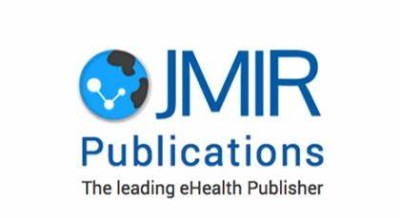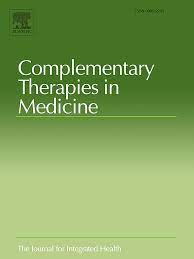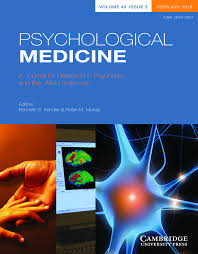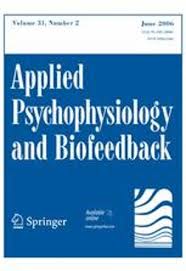Research Library
You can search for publications by selecting a category or keyword. All publications containing the selected category or keyword will be displayed below.
Categories
Keywords
Categories
Keywords
- Show all
- ADHD
- Anxiety/Panic
- Burnout
- Cancer
- Cardiovascular disease
- Chronic pain
- Cognitive function
- Cortisol/DHEA
- Costs
- Dementia
- Depressie
- Diabetes
- Global Coherence
- Hypertension
- Intuition & Consiousness
- Kids/Youth
- Leadership
- Meditation/Mindfulness
- Metabolic Syndrome
- Obesity/Eating disorder
- Pregnancy
- PTSD
- Resilience
- Schizophrenia
- Science HRV & Coherence
- Sleep quality & fatigue
- Social Coherence
- Stress
Heart Rate Variability Biofeedback to Treat Anxiety in Young People With Autism Spectrum Disorder: Findings From a Home-Based Pilot Study

Background: People with autism spectrum disorder (ASD) frequently experience high levels of anxiety. Despite this, many clinical settings do not provide specialist ASD mental health services, and demand for professional support frequently outstrips supply. Across many sectors of health, investigators have explored digital health solutions to mitigate demand and extend the reach of professional practice beyond traditional clinical settings.
read more...
Heart rate variability biofeedback in chronic disease management: A systematic review

Background: Heart rate variability biofeedback (HRVB) is a non-pharmacological intervention used in the management of chronic diseases.
Method: A systematic search was performed according to eligibility criteria including adult chronic patients, HRVB as main treatment with or without control conditions, and psychophysiological outcomes as dependent variables.
Results: In total, 29 articles were included. Reported results showed the feasibility of HRVB in chronic patients without adverse effects.
Effect of Quick Coherence Technique on Psychophysiological Coherence, Heart Rate, Stress, Anxiety, Depression and Feeling State in Young Adults in India

HeartMath technology is an innovative technique to improving emotional mental health. A small-scale study was conducted to investigate the effect of quick coherence technique on psychophysiological coherence, stress, anxiety, depression and feeling state in young adults in India. Present study is in line with the past research done by S.D.Edwards (2016) on ‘Influence of Heartmath Quick Coherence Technique on Psychophysiological Coherence and Feeling States’. Six postgraduate students who complained of stress, anxiety and depression were
read more...Neurophysiological Approach by Self-Control of Your Stress-Related Autonomic Nervous System with Depression, Stress and Anxiety Patients.

Abstract: Background: Heart Rate Variability Biofeedback (HRVB) is a treatment in which patients learn self-regulation of a physiological dysregulated vagal nerve function. While the therapeutic approach of HRVB is promising for a variety of disorders, it has not yet been regularly offered in a mental health treatment setting. Aim: To provide a systematic review about the efficacy of HRV-Biofeedback in treatment of anxiety, depression, and stress related disorders. Method: Systematic review in PubMed and Web of Science
read more...Heart Rate Variability Biofeedback Improves Emotional and Physical Health and Performance: A Systematic Review and Meta Analysis

We performed a systematic and meta analytic review of heart rate variability biofeedback (HRVB) for various symptoms and human functioning. We analyzed all problems addressed by HRVB and all outcome measures in all studies, whether or not relevant to the studied population, among randomly controlled studies. Targets included various biological and psy-chological problems and issues with athletic, cognitive, and artistic performance. Our initial review yielded 1868 papers, from which 58 met inclusion criteria. A significant small to moderate effect size was found favoring HRVB, which does not differ from that of other effective treatments. With
read more...Heart Rate Variability, Health and Well-Being: A Systems Perspective

The development of a new tool, analytic device, or approach frequently facilitates rapid growth in scientific understanding, although the process is seldom linear. The study of heart rate variability (HRV) defined as the extent to which beat-to-beat variation in heart rate varies, is a rapidly maturing paradigm that integrates health and wellness observations across a wide variety of biomedical and psychosocial phenomena and illustrates this nonlinear path of development. The utility of HRV as an analytic and interventive technique goes far beyond its original application as a robust predictor of sudden cardiac death. This Research Topic aims to provide a conceptual
read more...The effect of heart rate variability biofeedbacktraining on stress and anxiety: a meta-analysis

Background.Some evidence suggests that heart rate variability (HRV) biofeedback might be an effective way to treat anxiety and stress symptoms. To examine the effect of HRV biofeedback on symptoms of anxiety and stress, we conducted a meta-analysis of studies extracted from PubMed, PsycINFO and the Cochrane Library.Methods.The search identified 24 studies totaling 484 participants who received HRV biofeedback training for stress and anxiety. We conducted a random-effects meta-analysis. Results.The pre-post within-group effect size
read more...Cardiac Coherence Training to Reduce Anxiety in Remitted Schizophrenia, a Pilot Study

Health care that addresses the emotional regulation capacity of patients with schizophrenia confronted with daily stress may contribute to a less anxious life. A psycho-physiological training [cardiac coherence training(CCT)] focusing on emotion regulation is known to decrease anxiety for healthy individuals. We performed a pilot cross sectional survey to explore the benefits of CCT for clinically stable patients with schizophrenia. Ten patients were enrolled in the program consisting of twelve weekly 1-h session programs monitored over a 2-month
read more...Biofeedback Intervention for Stress, Anxiety, and Depression among Graduate Students in Public Health Nursing

Globally, graduate students have been found to have high prevalence of mental health problems. With increasing severity of mental health problems on university campuses and limited resources for mental health treatment, alternative interventions are needed.This study investigated the use of biofeedback training to help reduce symptoms of stress, anxiety, and depression. A sample of 60 graduate students in public health nursing was randomly assigned to either the biofeedback intervention or the control group. Results indicated that biofeedback
read more...Biofeedback Intervention for Stress and Anxiety among Nursing Students: A Randomized Controlled Trial

Purpose.It has been well documented that nursing students across the world experience stress and anxiety throughout their education and training. The purpose of this randomized controlled study is to investigate the impact of biofeedback intervention program on nursing students’ levels of stress and anxiety during their first clinical training. Methods.Participants consisted of 60 second-year baccalaureate nursing students. The 30 participants in the biofeedback group received training on how to use the biofeedback device to assist in stress and
read more...The Effects of Emotions on Short-Term Power Spectrum Analysis of Heart Rate Variability

Introduction: This study utilizes HRV analysis to examine a new method of intentionally shifting emotional states, and demonstrates that positive emotions lead to alterations in sympathovagal balance that may be beneficial in the treatment of hypertension. Anger, on the other hand, was shown to significantly increase sympathetic activation.
Summary: Salivary IgA, heart rate and mood were measured in thirty individuals before and after experiencing care or anger. Two methods
